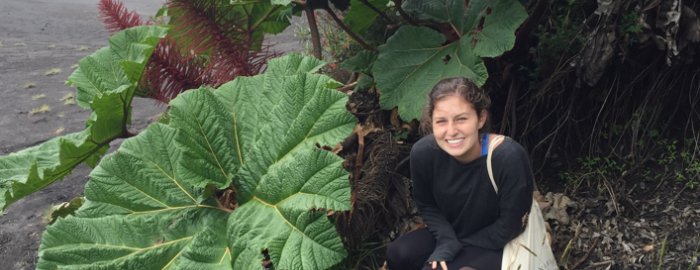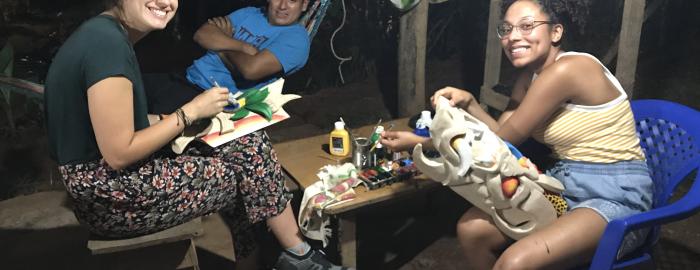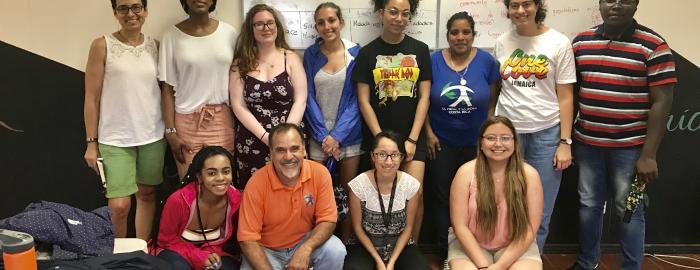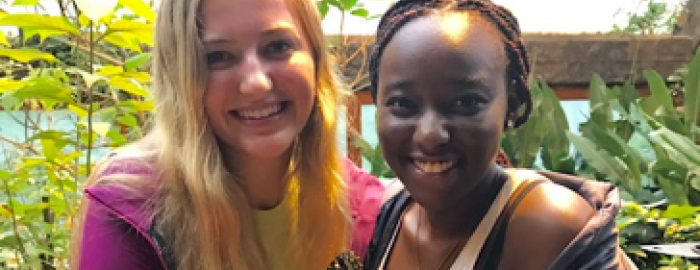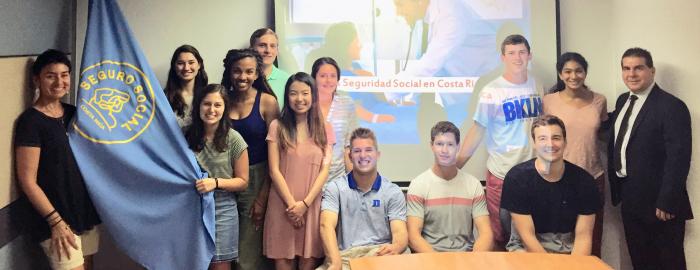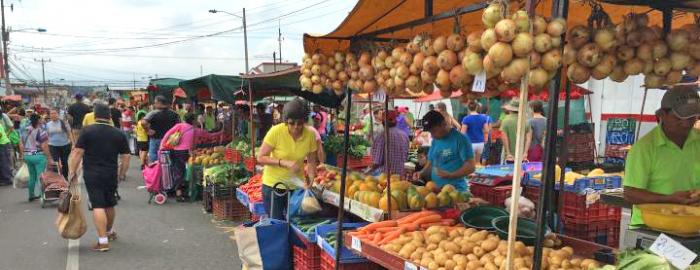Describe how some of your ideas or perceptions changed as a result of doing this program.
When I signed up to spend a month in Costa Rica, I didn’t really know what to expect. I didn’t know anyone else on the program and I had no true knowledge about Costa Rica as a country. So, when I arrived, Costa Rica was initially a shock. From the landscape to the casados for lunch, everything looked totally different from what I was used to. After a couple weeks, the changes between Costa Rica and the United States became more apparent and yet, less important.
I had only been out of the United States for brief periods of time before this trip, and I had primarily stuck to tourist locations. However, in Costa Rica, there was no typical comfort zone, and while frightening at times, I learned so much more not only about Costa Rica culture, but also about myself. I found that my judgments were often wrong or based on something I didn’t know about myself.
Opening my eyes to something unfamiliar made me realize two things: that sometimes unfamiliarity is good and that sometimes what’s unfamiliar isn’t that different from the familiar anyways. How I see Costa Rica has changed substantially; but more importantly, Duke in Costa Rica changed how I see myself, my culture, and my capacity to learn.

Compare how your skills or knowledge changed after doing this program.
I think I underestimated the power of immersion before this program. I spent every minute of every day for a month speaking Spanish. I messed up in the most ridiculous ways, saying 'diecicinco' instead of 'quince' about two hundred times. I distinctly remember my host mom asking me my colors, and me realizing that yes, I could talk about the Costa Rican health system, but what was the word for teal? It was a growing experience. It was awkward, and it was uncomfortable, and I wouldn’t have changed it for a minute.
Before going, I was a perfectionist. I never wanted to make a single mistake while I spoke, and I wouldn’t speak if I hadn’t planned out what I was going to say. However reassuring that might have been for me in the past, I needed a push to improve my efforts. Most of the time, it didn’t feel like I was making much progress. For weeks, I’d stumble over what I was trying to say. One time, someone told me I had told them about a grocery store when they had asked about my grandfather. My only option was to laugh and keep trying. I didn’t really notice the changes until the end of the program.
My best example is this: every day, I listened to my host mom and sister talk at the table in a rapid interchange of ideas. Every once in a while, they’d look at me, expecting a reply. For the first couple weeks, I didn’t have one. Becoming fluent in a different language is not an easy task. It’s slow and it involves a couple road blocks. I didn’t notice a change until my last night, I sat at the table with them and realized that I understood what they were saying.
And the next day, I walked up to the counter to order coffee, and I realized I could. The fear that had been constantly holding me back from making mistakes was gone. I probably left it somewhere behind when I was looking for the right word to identify a fruit, or when I wanted to convey an idea to my professor, or when I really, really wanted Pops ice cream.

Thinking back to what you expected this program to be like, would you say anything surprised you or turned out differently?
In Costa Rica, I accomplished more things that I ever thought I would in a month. I stood on a volcano, I saw more coffee plants that I had ever seen in my life, and I ate more arroz con leche than I care to ever eat again. The changes in culture, while interesting, weren’t as notable as I thought they would be. Not knowing anyone in the program before I came, I was worried I would have to face all of these challenges by myself. However, this was the complete opposite of what the program turned out to be.
The students who came with me not only failed with me, but also explored a new culture with me. We watched each other transform into different people as we shared both what we learned in our host families and what we were learning in class. Each one of us was pushed to become a more culturally aware and more fluent individual. I can’t imagine this program ever changing that.
The program forces you to think in Spanish, but it does an excellent job of not pushing you farther than you are capable of going. After every challenge, there’s a wonderful break. Whether it’s going to a Costa Rica soccer game or seeing waterfalls, the intense Spanish is balanced by fun. The friendships I made with these people, even if I hadn’t seen them at Duke before, were founded in such mutually shared experiences that I wouldn’t have expected but would never want to change.

How did/will this program play into the rest of your undergraduate experience?
This program was an amazing fit for me, as I’m both a Spanish and a Global Health major. Not only did it fill an elective for global health, it also boosted my Spanish skills beyond where they had ever been previously. While I am by no means a native speaker now, the confidence I’ve seen both in and out of the classroom in speaking has made a world of difference to me.
Also, the program helped me learn how to confront barriers that I face in an academic setting. Learning another language and learning to fail helped me open my eyes to the powers of learning and effort. Not only did my skills improve, but my mindset improved as well. However, I know that a lot of my classmates wanted to fill their Spanish requirement, and this is an amazing way to do this. Not only is it a super fun experience, it also is geared towards teaching you Spanish that will be useful in future experiences if not in an academic setting.

What advice do you have for other students considering this program?
Enjoy it. Don’t worry about the superficial mistakes. People know you’re learning and it’s the effort that counts the most. Also, admitting you don’t know how to say what you’re trying to say is okay. I can’t count the number of times that I had to dodge around a word until someone helped me connect the dots. Try the food and drink lots of café. Don’t worry about the host family concept – they’ll teach you so much about Costa Rica and Spanish. Most of all, just embrace the feeling of being in a new place, speaking a different language, and exploring the beautiful scenery and architecture that Costa Rica has to offer.
Lucy St. Charles
Spanish and Global Health, Class of 2020
Duke in Costa Rica
Summer 2017


